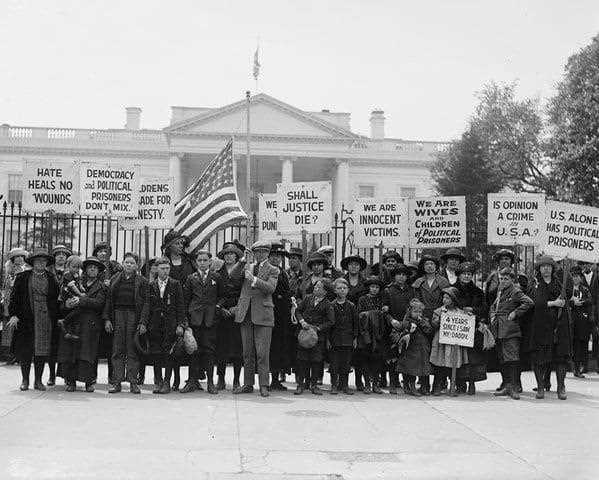*The Espionage Act*

On 15th of June 1917, approximately two months later the America's formal passage into World War I against Germany, the United States Congress passed this Act recognized as the Espionage Act.
Implemented to a great extent by A. Mitchell Palmer, the United States lawyer general under President Woodrow Wilson, the Espionage Act basically made it a wrongdoing for any individual to pass on data expected to meddle with the U.S. military arraignment of the war exertion or to advance the achievement of the nation's foes. Anybody discovered blameworthy of such acts would be liable to a fine of $10,000 and a jail sentence of 20 years.
The Espionage Act was fortified by the Sedition Act of the next year, which forced also brutal punishments on anybody discovered blameworthy of putting forth false expressions that meddled with the indictment of the war; annoying or mishandling the U.S. government, the banner, the Constitution or the military; upsetting against the generation of important war materials; or supporting, instructing or guarding any of these demonstrations. The two bits of enactment were gone for communists, peaceful objector and other against war activists amid World War I and were accustomed to rebuffing impact in the years quickly following the war, amid a period portrayed by the dread of socialist impact and comrade invasion into American culture that wound up known as the primary Red Scare (a moment would happen later, amid the 1950s, related to a great extent with Senator Joseph McCarthy). Palmer– a previous conservative whose perspectives on social liberties fundamentally changed once he expected the lawyer general's office amid the Red Scare– and his right-hand man, J. Edgar Hoover, generously utilized the Espionage and Sedition Acts to oppress left-wing political figures.
A standout amongst the most well-known activists captured amid this period, work pioneer Eugene V. Debs, and was condemned to 10 years in jail for a discourse he made in 1918 in Canton, Ohio, scrutinizing the Espionage Act. Debs bid the choice, and the case, in the end, came to the U.S. Preeminent Court, where the court maintained his conviction. In spite of the fact that Debs' sentence was driven in 1921 when the Sedition Act was revoked by Congress, real bits of the Espionage Act remain some portion of United States law to the present day.
Cheers!